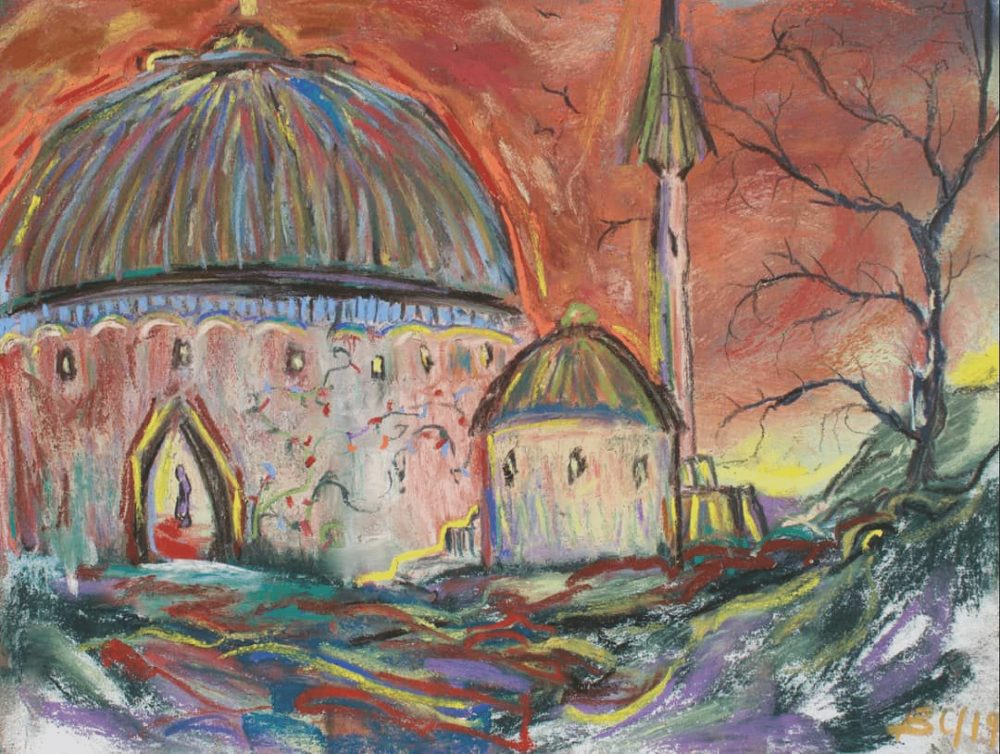CONTENT WARNING – Includes content related to Christchurch shootings.
If you need to talk to someone, Monash University Health Services offer counselling support:
https://www.monash.edu/health/counselling
Christchurch: events may be shocking, but islamophobia is nothing new
The 15thof March of 2019, was a typical Friday in Christchurch, New Zealand. School kids, in the middle of their last day of the week, probably itching for the time to go by till the end of the school day. It’s a shuffle through the peaceful airy atmosphere, and one by one, you have your everyday Muslim, leaving their work, school or leisure, to visit their mosque for the weekly masjid prayer in congregation. Little did they know that in the past two years, one man had methodically planned a very horrific appointment with these people of faith.
One man with an ordinary, ‘Western’ name. An ordinary guy, coming from an ordinary upbringing, yet able to commit such an extraordinary act. It is almost blasphemous, but unfortunately, in context it is not.
The terrorist was ruthless and inhumane in his slaughter of defenceless people, he did not only target one, but two mosques.
49 Muslim men, women and children have lost their lives and many more are critically injured.
What was incredulous was the fumbling, stupefied looks every news channel presenter and journalist had, when presenting this event.
They were shocked, not because of what had occurred, but because of who the perpetrator was.
A white, Australian, supremacist.
Both New Zealand and Australian citizens were shocked for two reasons: how could this have happened in New Zealand, and how was the “gunman” Australian? Where did he come from? Was he always like this? How did he grow up? What did he say when he started to shoot? Is he a ‘lunatic’?
Completely blown away, they were.
But we weren’t.
About two years ago, I had a particularly heated conversation with my grandmother. I remember this because becoming heated with my elders is not something I had grown up doing. I had been describing to my grandmother my long commute to university each day and why I was coming home so late. My grandmother leaned forward with concerned earnest and asked, “Are you not afraid?”
I was dumbfounded.
“Of what?” I asked.
“Well, Dima you do wear the hijab, and your clothing is very modestly done. You do know some people don’t like what you represent.”
I scoffed, in youthful arrogance.
A trusting arrogance.
“Yema (‘Mother’ in Eritrean mother-tongue) don’t be too worried. Australian people are not like that. They really don’t get too bothered, and if there is someone who does do something, I’m sure I can get some help from people on the ride,” I said, with full confidence.
My mother interjected, often playing the mediator between opinions, “Dima, take your grandmother’s words seriously, you know we worry.”
Then, turning to my grandmother, “Don’t worry, Yema, I often call her and her father waits at the train station when she’s getting home.” I smiled in my grandmother’s direction.
I knew my grandmother had accepted the words for now, and I thought her suspicion of the society we live in only came from experiencing intimidating criticism and complaints from her next-door neighbour. Lord knows, every time we go over to Yema’s and Jadu’s (‘grandfather’ in Arabic) house, we have to monitor our noise levels, making sure it’s not beyond a whisper.
There was a lull in conversation before my grandmother looked up at us and said, “Hanan, maybe it’s best if Dima doesn’t wear the hijab for now.”
My mother and I froze in shock. To not wear the hijab, and this is coming from my grandmother, a woman who is proud of displaying her religion and cultural background.
Looking back on it now, I can only sigh.
My first response was very fiery, a reflection of how upset I was.
I shouldn’t have to put my beliefs and identity on the back burner for my safety. That’s what my family had to go through before coming here as refugees.
If I do this, then what was the point of their struggles?
I answered immediately to both my mother and Yema, and my voice shook from restrained anger, not at my grandmother but at the point she had been pushed to, worrying for my safety.
“No, I will not cower because of a person, who decides to harm me for an illogical reason. I will not change in fear, or in anger at that person. If I die or get injure, I want it to happen with my hijab on my head. I know you are worried, Yema, but enough have been pushed over. I’m not going to take it off.”
My sentiments stand and apply more today than ever.
I know this belief is shared by not only my Muslim brothers and sisters, but many others, who within their generation and the ones before, had to give up parts of themselves to fit in with the majority of society.
Isn’t it ironic that the ones who were brave and secure enough in their identity, were the ones who paid the ultimate price in this uncovering of blatant Islamophobic miasma?
Now, another unfortunate tale unites New Zealand and Australia.
So, lest we forget, the victims of men who were whipped into action by the lashes of hate and stings of political remarks and snarks thrown carelessly.
Lest we forget, that Newton’s law of motion – that every action has an equal or opposite reaction – can be applied to the international human society, at its finest.
Asalam Walaikum Wa Rahmatulahi Wa Barakatu
(May Peace and Mercy and Blessings of Allah be Upon You)

